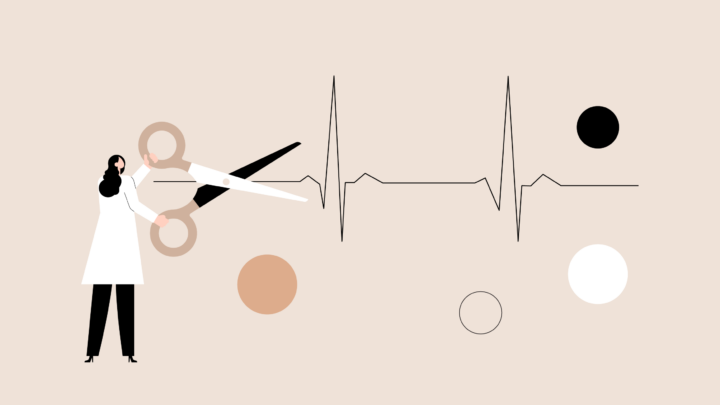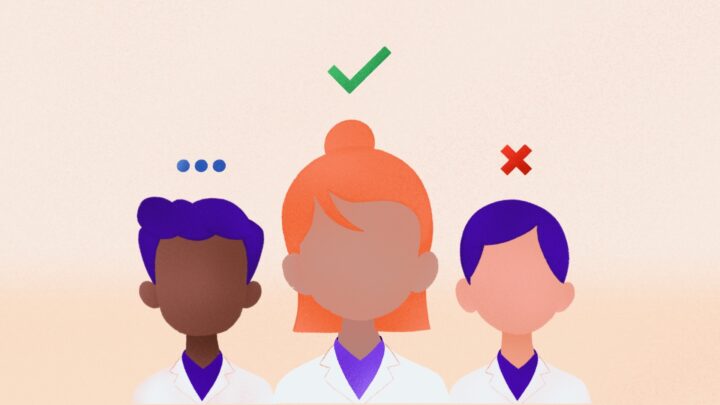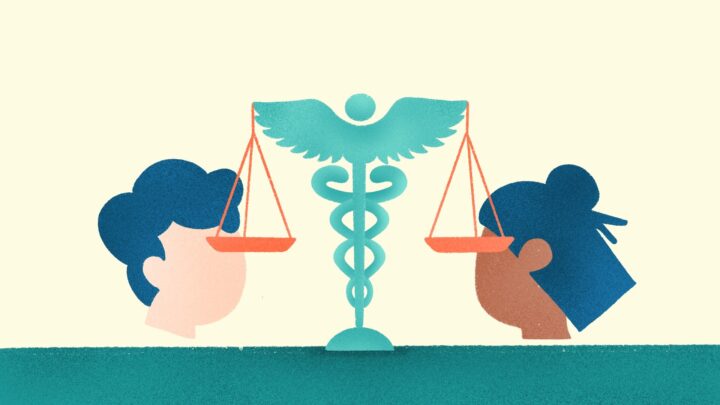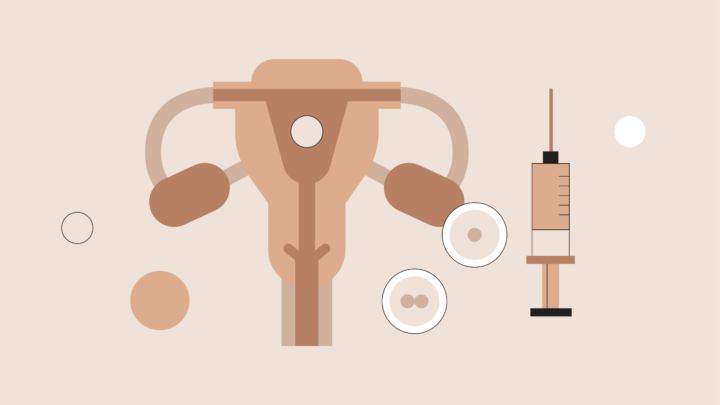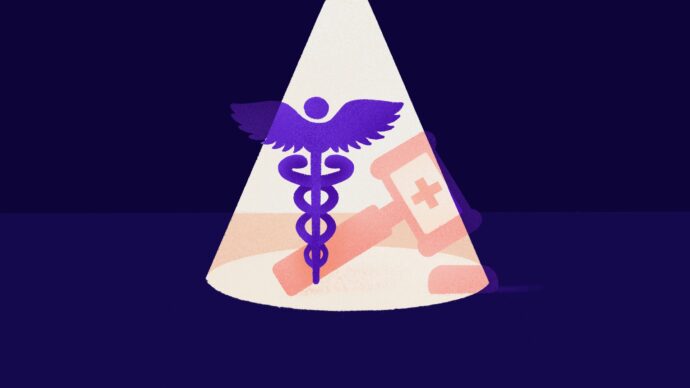
The first and most important maxim of the healthcare industry is Primum non nocere, or “First, do no harm.” It sounds simple enough, but the healthcare industry is complex, and everyone in this demanding field faces difficult choices daily. Understanding the various ethical challenges in healthcare will empower you to make smart decisions that are better for patients.
High ethical standards are a must for any healthcare professional, whether you are a doctor, nurse, or administrator. To help you navigate these standards, here’s a summary of current legal and ethical issues in healthcare and how to handle ethical violations.
What are ethical issues in healthcare: 4 key principles
Ethical dilemmas relating to healthcare are a field of applied ethics concerned with the moral decision-making medical staff must apply when making decisions. Moral and ethical values in medicine tend to vary based on the country and culture. Tom L. Beauchamp and James F. Childress have developed a standard approach to ethical topics in healthcare that hold true across borders and cultures. These guidelines for healthcare professionals help solve or avoid ethical dilemmas when medical moral principles are tested.
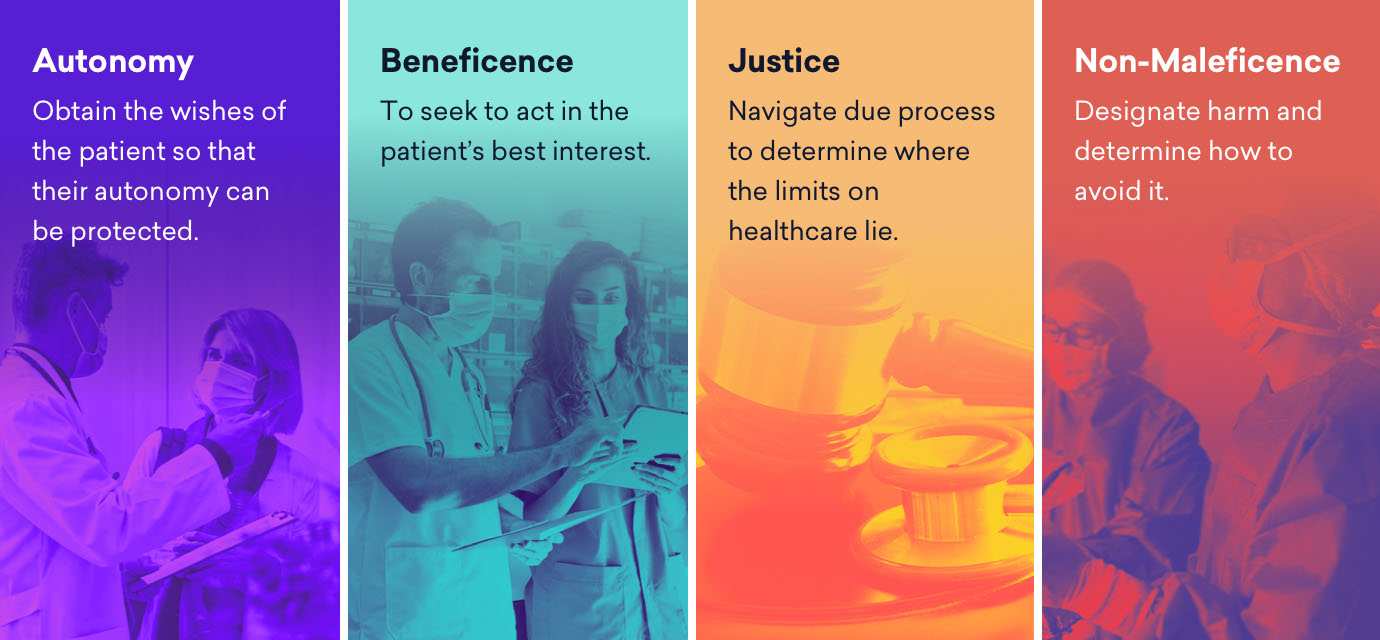
This ethical standards framework embraces four key principles of ethical decision-making within the healthcare industry.
- Autonomy – Obtain the wishes of the patient so that their autonomy can be protected.
- Beneficence – To seek to act in the patient’s best interest.
- Justice – Navigate due process to determine where the limits on healthcare lie.
- Non-maleficence – Designate harm and determine how to avoid it.
Healthcare organizations and practitioners must collaborate with patients to understand and balance their needs, human rights and desires as human beings. For example, would it be ethical for health practitioners to provide a blood transfusion to a Jehovah’s Witness even if it would save their life?
Modern healthcare is collaborative, and talking to patients is key to avoiding ethical violations in healthcare. Medical practitioners and public health officials should never make assumptions about a patient’s needs and desires. Ask for informed consent and follow safety protocols to ensure ethical principals are upheld.
Examples of ethical dilemmas in healthcare
Whenever a patient undergoes treatment, there are always medical ethical issues to negotiate. Issues with waiting lists, access to medical resources, and decisions on the correct course of treatment all pose ethical dilemmas. Take note: ethical is not the same as lawful. Something can be unethical but perfectly legal.

For example: if the emergency room is constantly backlogged, it’s not legally required for the healthcare facility or hospital administrators to speed up their work. On the other hand, it could be considered ethical to raise the matter with the hospital’s management team to find ways to help more patients, faster.
Some other examples of ethical issues in healthcare are the prioritization of treatment. Who needs immediate attention, and who should wait? Within organ donation, is it ethical to give a matching liver to an older patient who suffered from alcoholism when a younger patient would also benefit from that liver?
Ethical considerations in healthcare are complex, and sometimes even the right decision might not feel like the most ethical approach. It can be difficult to face ethical dilemmas especially in a life threatening emergency, but below we cover common examples, principles and best practices on how healthcare management, professional organizations and HCPs can maintain ethical behavior.
5 ethical issues in healthcare
The medical world is constantly evolving, and as medical technology changes, doctors are left with a host of new ethical issues. In a recent Sermo survey asking physicians the top medical implications they faced, the most common result was balancing patient care quality and efficiency. Ethical dilemma responses included:
- 21% Balancing care quality and efficiency
- 17% Allocating limited medications or tools of support
- 17% Addressing end-of-life issues
- 15% Addressing access to care
- 15% Doctor and patient confidentiality
- 13% Allocating limited donor organs
When asked what other top ethical issues physician face in medicine, responses included:
Insurance dictating medical care. Insurance companies delaying or denying surgeries.
Neurosurgery, U.S.
You cannot report to the ones who may actually be getting paid to be the underlying cause of the problem.
Internal Medicine, U.S.
Overcoming an ethical dilemma in medicine isn’t black and white, as is the case with lawful/unlawful actions. Let’s examine some of the key medical ethical issues facing healthcare providers and staff today.
1. Do-Not-Resuscitate (DNR) orders
DNR orders have always been a controversial medical ethical dilemma, as shown by the 17% of survey respondents claiming end-of-life issues as one of the top ethical issues they face. This order instructs any healthcare workers or providers not to perform cardiopulmonary resuscitation (CPR) if the patient’s heart stops beating or they stop breathing. These orders may only be written in consultation with a physician and a patient. Yet one ethical issue in healthcare is what happens when a patient clearly displays a DNR order?
In 2017, one Florida man had a DNR order tattooed across his chest. Although the seriousness of the tattoo was questioned, the man could not breathe and could not talk, so the ICU unit decided to honor the message and opted not to initiate CPR. Such ethical and moral dilemmas are tough to handle for all healthcare providers and staff.
From an ethical standpoint, DNR orders must balance the degree of pain involved in treatment when compared to the potential benefits. As a result, addressing end-of-life issues can be one of the major healthcare challenges for medical doctors and healthcare organizations.
For more information about DNR orders and resolving ethical issues according to the code of ethics while avoiding legal issues and negative consequences, check out this resource.

2. Patient confidentiality
One of the biggest legal and ethical issues in healthcare is patient privacy and confidentiality. This is why 15% of survey respondents noted that doctor-patient confidentiality is their top ethical issue in practicing medicine. Healthcare providers and employees have an obligation to secure and protect the privacy of all patient medical records and health information. Under the Health Insurance Portability and Accountability Act (HIPAA), violations of patient privacy could lead to suspension and termination.
Yet, there are gray areas, which can inadvertently lead to ethical violations in healthcare. That is why it is vital to study ethics and instead of avoiding ethical dilemmas, confront them with empirical knowledge and sound ethical principles. For example, would it cause more harm than good to withhold aspects of a patient’s medical condition? Likewise, the opposite could be true depending on your personal beliefs and professional life experiences.
For more information on patient confidentiality in health information, check out this deepdive into patient confidentiality in healthcare.
3. Mandatory COVID-19 vaccinations
According to Sermo’s survey, 73% of respondents believe that ethical issues have increased since the start of the pandemic.
Public health bodies worldwide have discussed the merits and drawbacks of implementing mandatory COVID-19 vaccination policies. This is an issue that impacts health workers and the entire healthcare industry. Many countries have made vaccinations mandatory for all staff within the healthcare sector, including in Europe and Asia.
This is one of the most hotly debated current ethical dilemmas in healthcare organizations because it’s brought serious questions into the spotlight. Where does individual medical liberty stop and the needs of wider society start? Is it ethical to force someone into treatment if they don’t wish to undergo that treatment? How about when you consider healthcare costs, personal beliefs, religious beliefs, patient outcomes, and long-term consequences?
For further reading, here are ethical considerations for a COVID-19 vaccine mandate.
4. Healthcare accessibility
According to figures from the United States Census Bureau, 294.6 million people had health insurance in 2017, a record high. Despite this, one in five U.S. adults decided not to seek healthcare in 2017 because they had no medical insurance. The soaring cost of both healthcare and associated insurance policies leads to ethical dilemmas, which is why 15% of our survey participants highlighted this as their top ethical issue.
Is it ethical to reject someone who needs medical treatment based on their insurance status? Is it ethical for hospitals or some healthcare providers to charge so much for treatment? Strikes might disrupt patient care and create ethical dilemmas that many physicians feel uncomfortable with. This is not only an ethical issue in medicine, but it’s a discussion often taken up in politics regarding how society wants to operate its healthcare system. It’s a debate that has raged for decades in the U.S., with no end in sight. Politically, the U.S. will see this as the defining ethical issue of our time, with profitability vs. public health coming into direct conflict.
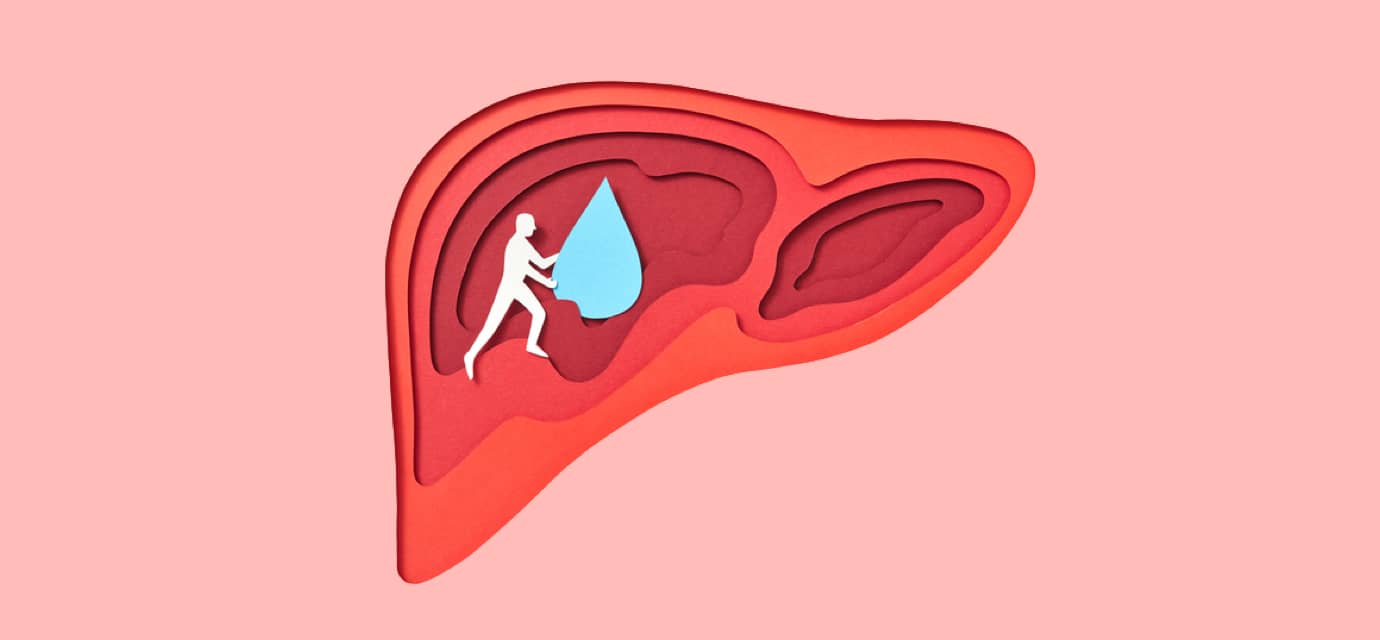
5. Allocating limited donor organs & resources
13% of Sermo’s survey respondents felt that allocating limited donor organs is the top ethical issue in healthcare, while 17% felt the same way about medication and tools. And it’s not surprising considering that in the United States, more than 95% of North Americans are in favor of being an organ donor yet only 58% are actually registered donors. With less than 4% of the population being on the waiting list for a donor, it can be seen that most organs in the U.S. come from deceased donors and only a small percentage come from living ones.
This is why research on the ethical considerations of limited donor organs is very important in order to increase the number of living donors. For more information on ethical issues in organ donation, check out Ethical principles in the allocation of human organs.
Additionally, medications and tools of support can be difficult ethical issues to manage by today’s health care workers in the health system. Medication, for instance, is the best way to cure disease. Plus, acutely acting medications are used as adjunctive therapy to a primary treatment method (e.g., surgery). However, some medications are in limited supply meaning not all patients receive the medication they need, causing moral conflict.
The same is true of tools of support for physicians. Different regions offer varying degrees of support and a wide range of tools. Unfortunately, many rural areas suffer from lack of modern medical tools. However, support encompasses more than just the physical aspects of a practice. It extends to multiple facets, sometimes making it challenging to identify ethical considerations in healthcare caused by supply shortages.
A doctor’s work is never done, and when on-call at the hospital, there are few moments of rest in-between shifts. In order to be patient advocates, doctors need support from colleagues and loved ones for this tough work. As a result, it’s imperative that doctors find a way to balance helping patients without neglecting family, friends, or hobbies. Notably, when asked where they found support for dealing with ethical dilemmas and ethical principles 31% of survey participants mentioned colleagues. 30% looked to professional superiors for help.
How to handle ethical violations in healthcare
Moral dilemmas and ethical issues place a burden on nurses, doctors, and administrative staff. Although the priority should be prevention, confronting ethical missteps is a part of the profession. This is necessary because 47% of physicians have had to face ethical dilemmas in their own practice. So, how can you best uphold business ethics and ethical values, while maintaining personal and professional boundaries?
Our recent survey provided the following answers:
- 36% Report the conduct to appropriate clinical authorities, such as the peer review body of the hospital, or the local or state medical society
- 22% Protect the privacy of the patient
- 17% Report the suspected violation to appropriate authorities
- 14% Confront the people who are involved in the ethical violation
- 9% Report the conduct directly to the state licensing board
Here is a step-by-step example of how to address ethical violations at your practice. Firstly, acknowledge and investigate the potential ethical issue. Bring together different disciplines and create an environment where people are allowed to and feel comfortable speaking up, regardless of their seniority or primary responsibility.
Next, an ethical violation should be categorized as either a process issue or a regulatory issue. Remember, something can still be an unethical behavior even if it happens to be perfectly legal. For example, when a parent refuses to support a patient’s wishes, what is the clinic or hospital’s policy on the right way forward?
Additional real life examples of ethical dilemmas are informed decision making involving multiple family members, sexual harassment cases, electronic health records ethics, and recommendations that conflict with religious beliefs or individual beliefs that contradict business ethics. These common ethical issues each possess potential consequences and are extremely important to manage with the well being of your patients and other employees in mind.
Ethical dilemmas may require an update to internal rules and work processes. This requires consultation with frontline staff members, the administrative body, and the legal team. The best way to handle ethical problems in medicine is to adopt the following:
- Provide regular refreshers on ASHA’s Code of Ethics and data privacy best practices.
- Break silos and allow for different staff members to come together to discuss the issue.
- Establish a clear chain of command for when ethical issues need to be escalated or when group decision making is required.
- Create an environment where the patient’s wishes are prioritized. This includes informed consent, reviewing questionable medication orders and involving family members when appropriate.
- Employ ethics experts to work alongside medical teams or create ethics committees to review the decision-making process, patient rights, moral norms and moral rights, regarding the particular case.
Here are more professional standards that should be implemented at health care services.
Healthcare providers should adhere to a set of professional standards and guidelines to ensure the delivery of high-quality care, patient safety, and ethical practices. These standards are essential for maintaining the trust and confidence of patients, families, and the broader community. While ethical theories may vary by country and healthcare setting, here are some common professional standards that should be implemented in healthcare companies:
- Clinical care standards:
- Adherence to evidence-based guidelines for diagnosis, treatment, and care.
- Continual monitoring and improvement of clinical outcomes.
- Prompt pain management and symptom control.
- Commitment to infection control and prevention measures.
- Patient-centered care:
- Respect for patient’s autonomy and involvement in decision-making.
- Timely and effective communication with patients and their families.
- Cultural competence and sensitivity to diverse patient populations.
- Compassionate and empathetic patient care in tandem with ethical obligations.
- Safety standards:
- Implementation of patient safety protocols, including medication reconciliation and patient identification procedures.
- Reporting and investigation of adverse events or near misses.
- Reduction of healthcare-associated infections and other preventable harm.
- Effective management of medical errors and disclosure when they occur.
- Ethical standards:
- Adherence to ethical principles, such as beneficence, non-maleficence, autonomy, and justice.
- Protection of patient information, patient confidentiality and privacy.
- Informed consent processes for treatments, procedures, and research.
- Resolution of ethical dilemmas through consultation with ethics committees when necessary.
- Continuing education and competence:
- Ongoing professional development for healthcare providers and co workers.
- Maintenance of licensure and certification requirements.
- Monitoring of healthcare professionals’ competence and performance to avoid harm.
- Documentation and record-keeping:
- Accurate and complete documentation of patient care as well as any follow up visit.
- Timely entry of patient information and health care provider into electronic health records (EHRs).
- Protection of patient records and compliance with data privacy regulations.
- Collaboration and teamwork:
- Effective interdisciplinary collaboration among healthcare professionals.
- Clear and open patient treatment communication and moral conflict among team members.
- Encouragement of a culture of mutual respect and group decision-making.
- Resource utilization and efficiency:
- Responsible use of healthcare resources, including diagnostic tests and treatments.
- Efforts to minimize healthcare waste.
- Monitoring and control of healthcare costs while maintaining quality care to promote health.
- Patient and family education:
- Providing patients and their families with information about their conditions, treatment options, and self-care.
- Supporting patients in making informed decisions about their health care.
- Quality improvement:
- Regular assessment of healthcare services and processes.
- Implementation of quality improvement initiatives to enhance patient outcomes and safety.
- Measurement and reporting of performance metrics.
There’s no getting around it: ethical issues will happen. What matters is that as part of a patient-centered care system, ethics are at the forefront.
By creating and maintaining a code of ethics, due process, safety protocols and the appropriate person responsible for handling the ethical dilemma, healthcare professionals can successfully manage potential ethical issues.
Frequently asked questions in medical ethics
What are common ethical obligations facing medical doctors?
Moral considerations that often arise at a practice or hospital include patient autonomy, informed consent, patient’s confidentiality, patient’s autonomy, professional and personal ethics, end-of-life care, resource allocation, cultural sensitivity, competing values, and personal relationships.
What’s an ethical issue?
If you are looking for what does ethical issues mean, an ethical problem definition, also known as ethical dilemmas or moral conflict, refer to situations or conflicts in which there is a moral or ethical disagreement or uncertainty about what is right or wrong. Ethical concerns definitions typically involve conflicting values, principles, or obligations, and they often require individuals to make difficult decisions or choices based on their sense of ethics and ethical theory.
What can healthcare workers use to handle moral distress?
Regarding medical ethics, Tom Beauchamp and James Childress created guidelines to address ethical issues in healthcare that are applicable to patient care globally. These guidelines aid healthcare professionals and professional organizations in handling ethical dilemmas related to medical moral principles. You can also consult ASHA’s code of ethics if you have questions about ethical behavior or ethical standards.
Conclusion
Facing tough moral decisions places heavy stress and self-doubt upon healthcare professionals. But, there’s no reason to feel frustrated any longer. Get guidance on confronting specific healthcare challenges or simply ask for support navigating a medical ethical dilemma and ethical issues in healthcare from doctors who have gone through similar situations. Enter the virtual doctor’s lounge and explore opinions from over 1 million doctors across 150 countries.
Sermo is the world leader in bringing together expertise, personal experience, and cases from the frontline all in one place. Join the world’s largest physician-first online community and get access to paid surveys for doctors by signing up to Sermo now.
